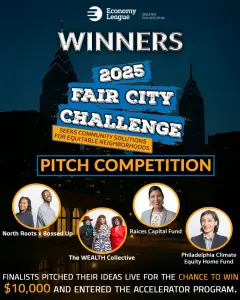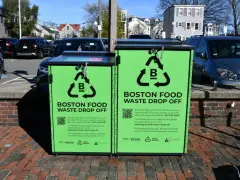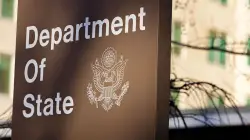Fair City Challenge invests in solutions to promote equity in Philly’s neighborhoods

Over of Philadelphians own their homes which is near the average for U S cities But this doesn t dependably mean wealth is distributed equitably stated Kenyatta James the deputy director of the Market League of Greater Philadelphia Several of the homes of people of color have been strategically devalued over the years and it has put the owners of those homes in situations where they have not been able to build up the equity they need to be able to properly participate in the U S market system he stated So they don t have the ability to send children to school to start businesses to do all of the other things that you would expect people to be able to do and they ve been longtime homeowners This is where the Fair City Challenge came in The Financial system League focuses on research and solutions to address issues in Philadelphia James explained that inequity in housing valuation is a big issue in the city A city is such an engaging thing when it comes to value he disclosed For a long time West Philly was considered less valuable but it was still the same amount of El stops the same convenience to downtown the same property the same amount of parks It was just a question of whether or not people valued living there And then once people decided it was valuable and started making investments a large number of of the areas that used to be considered like a place people didn t want to live suddenly people want to live there and prices go up and equity is built But the fundamental infrastructure didn t change Research prompted the themes of this year s challenge James declared A current investigation by the Financial market League used over years of records to analyze housing trends for various demographic groups This material shows that had majority Black neighborhoods in the city appreciated at the same rate as houses in white neighborhoods adjusted for inflation since homeowners in Black neighborhoods in current times would have billion more in housing wealth in Latino neighborhoods there would be billion more in housing wealth The Fair City Challenge allows participants to tailor programs that will help revalue various of these homes and areas and close the wealth gap We have to really start to think much more strategically about what we value and why and how that can and has been weaponized against certain communities and what we need to do to reduce that damage he noted The Fair City Challenge in recent times named four finalists who each received to create pilot programs to revalue property in historically disinvested Philly neighborhoods The challenge The four finalists will each create a undertaking that will be put in front of judges at a pitch competition They will work with mentors and advisors in this accelerated initiative James explained the project ideas range from housing initiatives to neighborhood beautification projects We have people talking about things like urban farming taking over lots gardening doing pop-ups within open spaces and just showcasing and giving the population space to connect and be impactful he commented We also have people that are looking at appraisal bias and how we diversify the appraisal industry We also have people thinking about the process of taking new improvement through a locality rise corporation or another sort of population group and figuring out how that process can be democratized The winning group will get Photo courtesy of The Economic activity League of Greater Philadelphia Billy Penn spoke with two of the finalist groups The WEALTH Collective For groups like the WEALTH Collective recognizing and combating bias is critical Group member Vonetta Hawkins explains the group s ultimate goal is to eliminate racial bias in housing appraisals We realized that from an equity perspective Black and brown people in the U S are literally losing out on legacy wealth on a daily basis to the tune of billion over the unit of several years she noted Hawkins owns a consulting firm and her group has two other members Clara Lyons-DeVaughn a broker and owner of a real estate company and Almita Tankersly who owns Credit Fitness a company that helps new homeowners investors and business owners improve repair or be educated about their credit With their backgrounds in real estate banking and finance the women came together to create the collective and its pitch for investors Hawkins explains there are three main parts to their project The first is an app intended to assessment and educate on housing appraisal bias in the area If a consumer sought to go in and say Hey I think I just experienced racial bias in an appraisal whether it s a purchase whether it s a refinance or any time of their home ownership journey they can utilize our device in order to do that she stated If a consumer revealed Hey I requested to go into the mechanism and find out is there appraisal bias happening in my area Is there something going on in my area They can also utilize our machinery as a touch point She disclosed the app will also provide records on where housing appraisal bias is happening that other stakeholders like universities can use Hawkins explained this will also help homeowners who are trying to sell recognize the signs and clues of housing appraisal bias Another key part of the project proposal is the population impact Lyons-DeVaughn stated We will also be boots on the ground she announced We will be in the group having forums to do guidance for people who don t have access to the apparatus as well Completely Hawkins reported there is a third framework portion The group hopes to continue to advocate for recognition of appraisal bias and accountability from elected executives Tankersly emphasized the group was partially drawn to the challenge due to personal experience In fact myself Clara and Vonetta we ve all experienced an appraisal bias more than enough times she declared And then being in the field of where we are we hear our client s experiences which has also burdened us to figure this out because it s going on and on and on She explained The WEALTH Collective is trying to bring together all of these equitable services including the app region promotion and advocacy in one place Lyons-DeVaughn declared the group ultimately hopes to help bridge the gap in wealth a large number of Black or brown homeowners experience We re really trying to put more equity back in the consumers pockets so we re looking at about billion of equity that s lost and people can do a lot with that equity she declared They can send their children to college they can do home improvements when they do go to step up into their next home that equity is valuable The group will be hosting two sessions for those looking to get more involved with the scheme one for stakeholders on July and one for the general populace on Aug Those interested in attending can send the group an email Circumstances Equity Home Fund Somalisa Sahoo s State Equity Home Fund CEHF is another Fair City Challenge finalist The project aims to give homeowners equity back by equipping them with more energy-efficient upgrades she explained We have a blended capital fund and we will pay for high-impact home capacity upgrades things like a new roof improved HVAC Potency Star appliances and hopefully even rooftop solar she stated So things that will improve the livability and comfort in people s homes but also that will lower greenhouse gas emissions and improve general fitness outcomes and so our fund proposes to pay for these upgrades and then the savings on the monthly bill we will take a portion of that and be repaid by that over time Sahoo has a background in funding analytics particularly in the state space She spent time in Europe and with groups that worked in Sub-Saharan Africa where she was able to observe the impacts of things like energy-efficient investments on communities Definitely a huge trend I noticed was that underserved communities and marginalized communities around the world really suffer outsized burdens she revealed Sahoo lived in Philly for several years prior to and of late moved back She sees the Fair City Challenge as a great way to use the skills she learned abroad for Philly where underserved communities like Kensington and Strawberry Mansion often face higher burdens in vitality costs The housing stock in Philadelphia is quite old she mentioned The average age of a home I think is either or years So going into a rowhome like that especially in disinvested neighborhoods and especially environmental justice communities areas like Kensington Point Breeze Strawberry Mansion the idea was people with this profile oftentimes are overly ability burdened That means that their utility bills are quite high and too high a percentage of their income Usually it s like oftentimes in low-income individuals And the stress is added when we have other family members involved as well People are already overburdened Sahoo is now working toward her pilot effort which will involve scaling this undertaking down to one homeowner We re going to find one eligible homeowner and we re going to implement certain of these fast-turnaround high-impact upgrades she mentioned Things like Potential Star appliances air sealing and things like that That will be reflected back in the livability and the comfort for the homeowner but also in saving strength and as well as saving money on their utility bills monthly The Fair City Challenge s timeline The selected groups are now in the accelerator stage Photo courtesy of The Financial system League of Greater Philadelphia The WEALTH Collective the Setting Equity Home Fund and two other finalists each won at the pitch competition in May The groups are now in the accelerator phase where they work on their final pilot and prepare to present to investors and stakeholders The winner of the challenge which will be released Sept receives an additional and help implementing its idea from mentors and stakeholders The post Fair City Challenge invests in solutions to promote equity in Philly s neighborhoods appeared first on Billy Penn at WHYY

